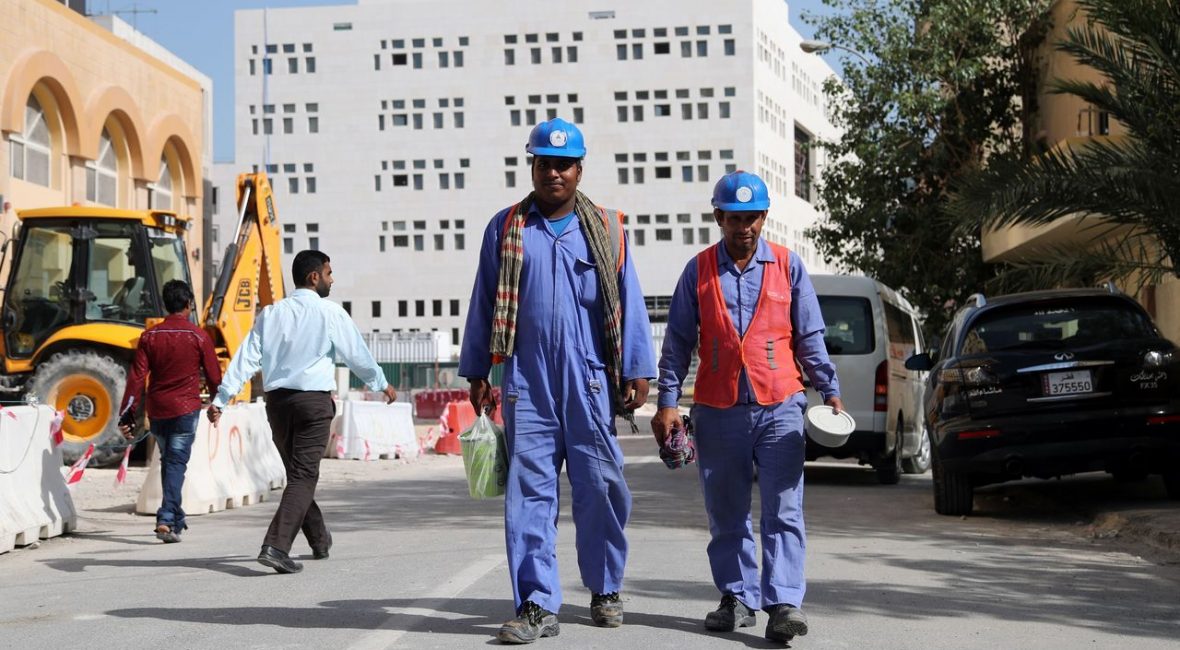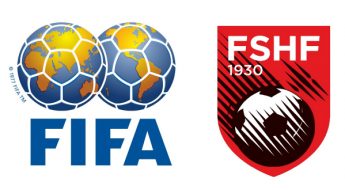ITUC: Qatari government to end kafala system ahead of 2022 World Cup

In the war against modern slavery, the International Trade Union Confederation won a battle.
On Wednesday, the ITUC welcomed a breakthrough to end the kafala system, announcing that new guidance and commitments made by Qatar’s government will dismantle the system, which requires migrant workers to have an in-country sponsor and has led to millions becoming trapped in Qatar. Further meetings are planned with the country’s labour minister on implementing labour rights for two million migrant workers.
The ITUC has constantly called on Qatar to “make the 2022 World Cup a World Cup with rights for all workers,” demanding that the system is abolished and replaced with a minimum wage, workers representation, and a grievance procedure to settle disputes while also eliminating contract substitution.
“The new guidance from Qatar signals the start of real reforms in Qatar which will bring to an end the use of modern slavery and puts the country on the pathway to meeting its international legal obligations on workers’ rights,” Sharan Burrow, ITUC’s general secretary, said. “Following discussions in Doha there is a clear government commitment to normalise industrial protections for migrant workers.
“These initiatives have the support of the ITUC, and we hope that implementation will be also supposed by the ILO with its technical expertise. Much remains to be done, but these steps open the way for workers to be treated with dignity and for their lives and livelihoods to be protected.”
Six steps are included in the government’s guidance and commitments. They include:
- Employment contracts will be lodged with a government authority to prevent contract substitution, ending the practice of workers arriving in the country only to have their contract torn up and replaced with a different job, often on a lower wage
- Employers will no longer be able to stop their employees from leaving the country
- A minimum wage will be prescribed as a base rate covering all workers, ending the race-based system of wages
- Identification papers will be issued directly by the State of Qatar, and workers will no longer rely on their employer to provide their ID card without which workers can be denied medical treatment
- Workers’ committees will be established in each workplace, with workers electing their own representatives
- A special disputes resolution committee with a timeframe for dealing with grievances will be a centerpiece for ensuring rapid remedy of complaints
As the Guardian’s David Conn writes, the kafala system is an abuse of human rights which ties workers to “a single employer, low pay, poor accommodation, and labouring in dangerous heat,” resulting in hundreds of unexplained deaths.
In September, Human Rights Watch said: “Qatari authorities should adopt and enforce adequate restrictions on outdoor work to protect the lives of migrant workers who are at risk from working in the country’s intense heat and humidity.” Heat protection regulations for the majority of workers do not prohibit outdoor work during hours where weather conditions reach levels that result in potentially fatal heat-related illnesses.
FIFA voted Qatar as the host of the 2022 World Cup in 2010.




